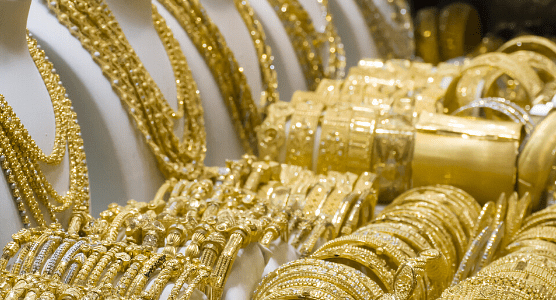Jewellers drag government to court, seeking stay on mandatory hallmarking. Indian jewellery manufacturers and retailers have filed a writ petition in the Bombay High Court pledging a permanent stay in the implementation of the mandatory hallmarking of gold ornaments. Filed recently, the petition is scheduled for a hearing next week.
In the writ petition, jewellers have alleged that the current format of the mandatory hallmarking law framed by the Bureau of Indian Standard (BIS) is under the Union Ministry of Commerce is unconstitutional as it debars consumers to choose jewellery piece with the purity of their choice. Since, the government has allowed gold ornaments to be made with only three types of purity i.e. 14ct, 18ct and 22ct, the existing practices of jewellery manufacturing with purity ranging between 9ct and 24ct will be affected.
Jewellers feared that 95 per cent of the gold jewellery business will be finished if the law is implemented in the current format. There is a huge amount of stocks with varying purity levels lies with jewellers which could not be sold due to the closure of retail stores following the coronavirus (Covid-19) pandemic. Re-melting of these stocks would add to a huge cost burden on jewellers. Hence, replenishment of this stock looks impossible before the scheduled date of mandatory hallmarking of gold ornaments i.e. June 1, 2021,
Hallmarking is a process through which encrypts a unique alpha-numero identification mark on each piece of jewellery to help government and jewellers trace its source of manufacturing and retailing. While the jewellery industry sees the government’s intention to discourage the bullion industry in India with mandatory hallmarking, the government sniffs tax evasion and opaque business practices in the current system.
“Jewellery sale is a buyer’s market. Whatever customers demand, we will have to deliver. Customer choose gold ornaments with the purity of 9ct, 18ct, 20ct, 21ct, 23ct and 24ct also, we have no options but to fulfil the demand of customers. Hence, gold jewellery with purity other than 14ct, 18ct and 22ct as mandated by the government would be impacted severely. We being the representative body of the entire jewellers’ fraternity across the country, need to ensure the smooth functioning of the business. The government’s imposition of mandatory hallmarking in the current formate, thus, is a clear cut violation of fundamental rights of the citizen of India, Hence, we have filed a suit in the Bombay High Court pledging a permanent stay on its implementation,” said Ashok Minawala, an industry veteran and former chairman of All India Gems and Jewellery Trade Council (GJC).
The fundamental rights of the Constitution of India empower consumers to choose their ornaments with the gold purity of their choice. But the BIS has restricted jewellers to sell gold jewellery with 14, 18 and 22 carats of gold content. Consumer demand of gold jewellery with the purity of gold, however, varies. While consumers in the north and west Indian markets prefer 22ct gold in ornaments, that in south India and certain pockets in Maharashtra opt for 24ct gold jewellery. Also, 23ct gold jewellery is most prevalent in the northeast states including West Bengal, Bihar and Jharkhand.
Ashish Pethe, Chairman of GJC, said, “While we support the implementation of mandatory hallmarking, jewellers have problems in its structure.”
Jewellers pointed out that ‘homogeneity (means purity of entire jewellery pieces of the lot should be the same) of the jewellery is the biggest problem in the current format of regulations. Since gold ornaments are manufactured by different karigars at different factories, their homogeneity is impossible. Secondly, the entire responsibility of lacunae, if any, will be put on retailers as the authenticity of purity being ensured by them, despite jewellery got manufactured by karigars. So, jewellery retailers will be penalised under criminal law for the mistakes committed by karigars. There is also ambiguity in terms of the place for unique identity code encryption.
Nitin Khandelwal, Co-owner of Akola-based Kandelwal Jewellers, said, “The government has appointed only one or two testing evaluators across the country. If a few samples fail in the testing out of 100-200 numbers lot of ornaments, then the entire lot will be rejected. This is the Tuglaqi law.”
Some experts on the virtual webinar conducted on “Mandatory hallmarking of gold jewellery and its implications” on Wednesday, highlighted the lack of infrastructure is the biggest hurdle in its implementation. There are 940 laboratory testing centres across the country which is insufficient to handle jewellery hallmarking demand.

